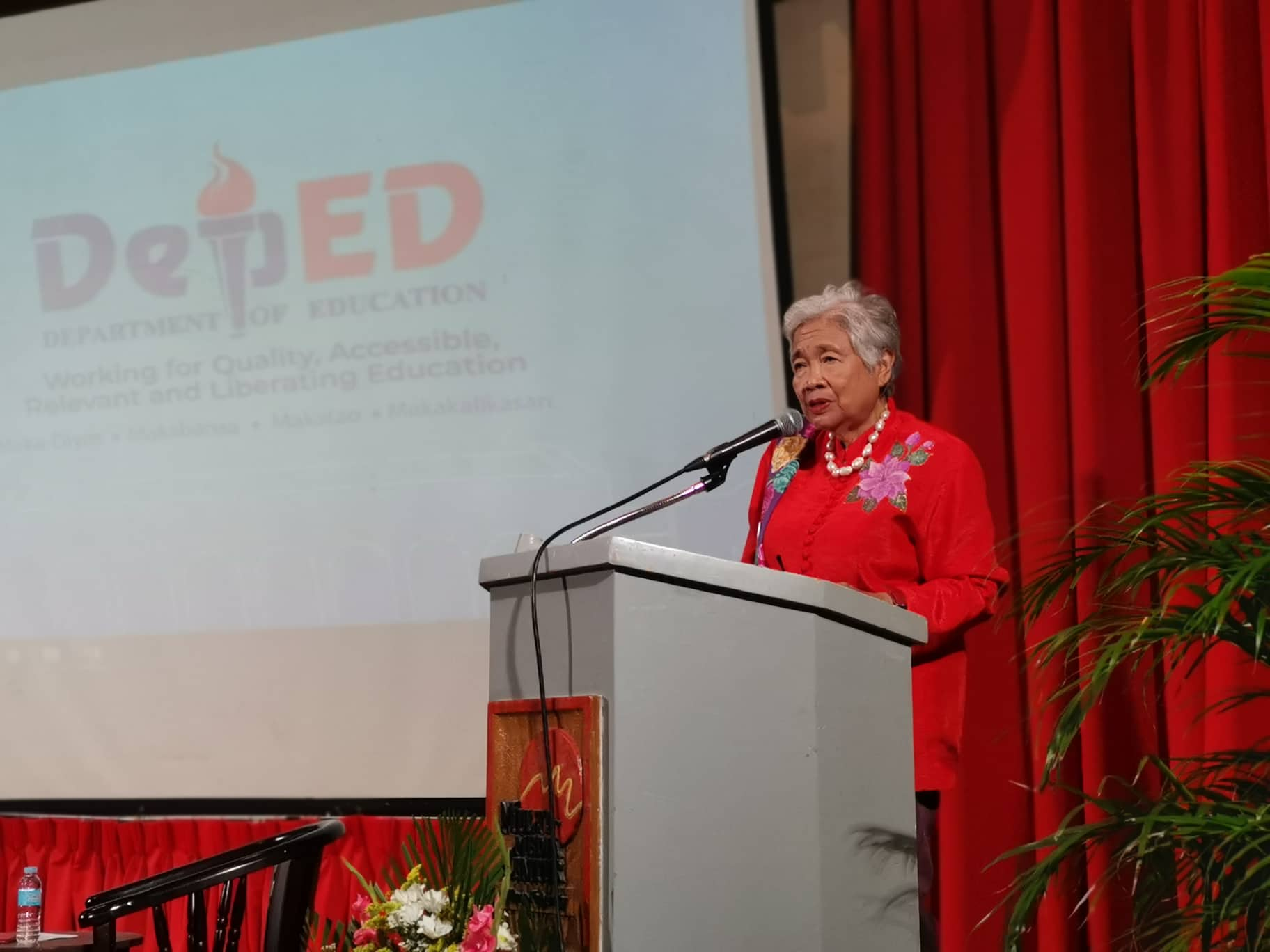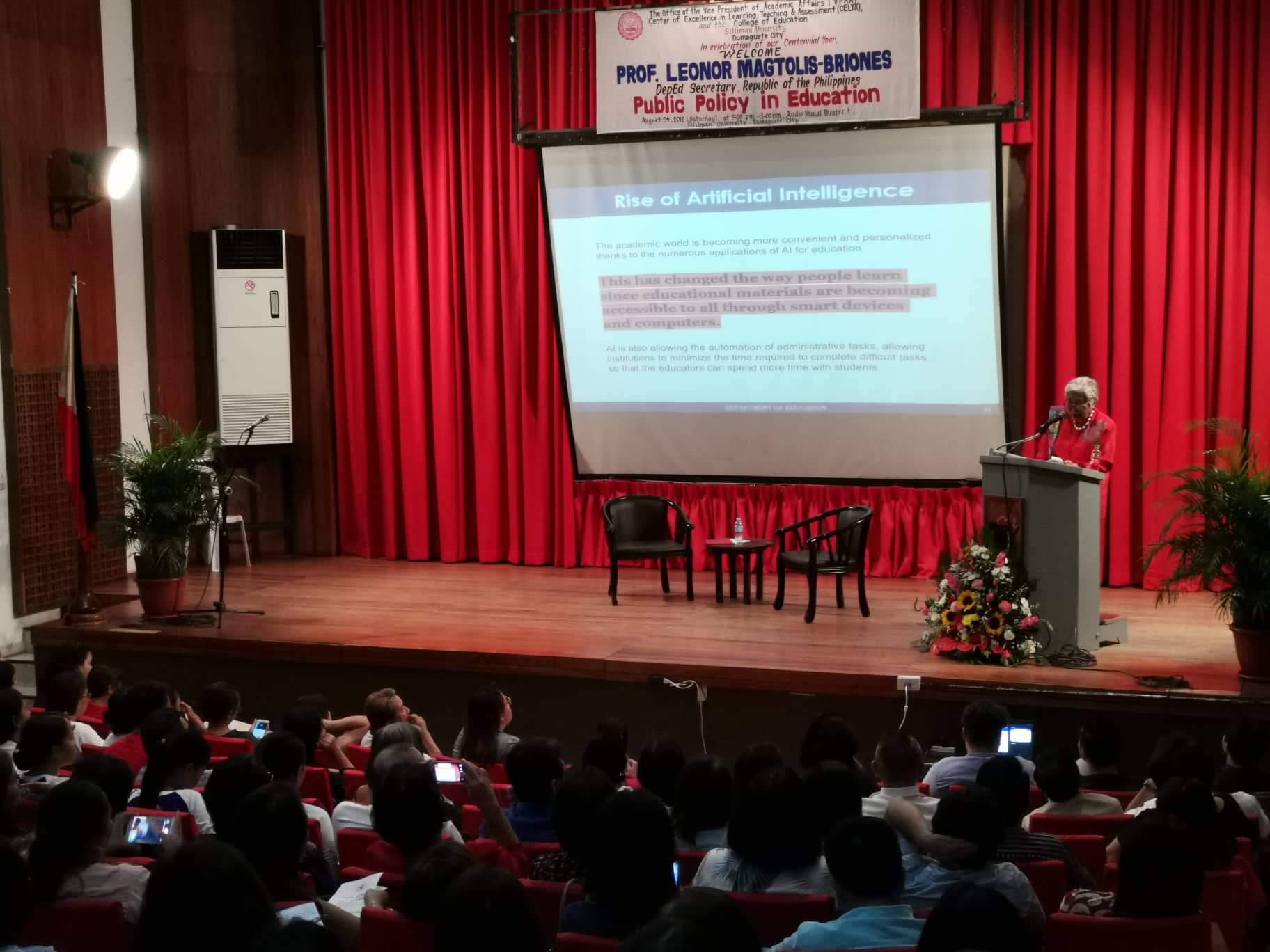DUMAGUETE CITY,, August 29, 2019 – “One of the most significant developments on Earth, at this time, is what we describe as the Fourth Industrial Revolution… And this is the march of the world — including all of us — into the digital age.”
Department of Education (DepEd) Secretary Leonor Magtolis Briones shared this when she discussed public policy in education in the context of the Fourth Industrial Revolution (FIRe) during the 118th Founders’ Day of Silliman University in Dumaguete City on August 25.
The Education chief explained how FIRe, which includes artificial intelligence (AI), profoundly transforms institutions at an increasingly rapid pace — the way they work, the quality of their work, and how they produce things.
“Identities, communities, and political structures are changed,” she added.
21st century challenges
Briones likewise mentioned that with AI increasing access to education by breaking through language and physical barriers, there is so much data available for the 21st century learners.
“The challenge is to teach our learners how to analyze, how to make sense of the data that they are being flooded with. We have to develop the capacity not only for the learners, but for us teachers and for us institutions producing the teachers to discern what data is relevant,” the Secretary emphasized.
She also cited the need to teach the learners how to synthesize these data and how to make sense of the world which is always changing.
Teaching and innovation
Pointing out that the quality of learners is largely shaped by the quality of teachers, Briones — a teacher and a Sillimanian herself — underscored the crucial role of teachers as guides, managers, and listeners, among many others.
“We are interested in the teachers, in the curriculum that produce the teachers who teach our learners. The challenge to all of us, especially our teachers, is to change the way we teach our learners to continually adapt to global trends such as FIRe and the rise of AI,” she shared.
The Education Secretary also mentioned the teachers who won global awards in recognition of their teaching innovations. This, she added, “is what we want our learners to absorb to be able to innovate and be relevant to the changing time.”
‘Reprieving our humanity’
The Secretary of Education further argued that even with FIRe and AI on the rise, “we have to reprieve our humanity.” She likewise emphasized the need to train people in jobs and skills that only humans possess.
“Social caring — that can only happen from human teachers,” Briones cited as an example.
She also shared the need to balance science, technology, engineering, and mathematics with humanities and the social sciences: “If we concentrate only on catching up on science and technology but forget of history, of culture, arts, and what makes us different, what makes us Filipinos, where will we get our soul?”
Further, she highlighted the challenge to produce a new breed of learners who think critically, analyze, synthesize, and find solutions to the problems of the world, given that the values of society are changing.
Briones concluded that “in a just, peaceful, and sustainable world, we should not be robots.”
END




